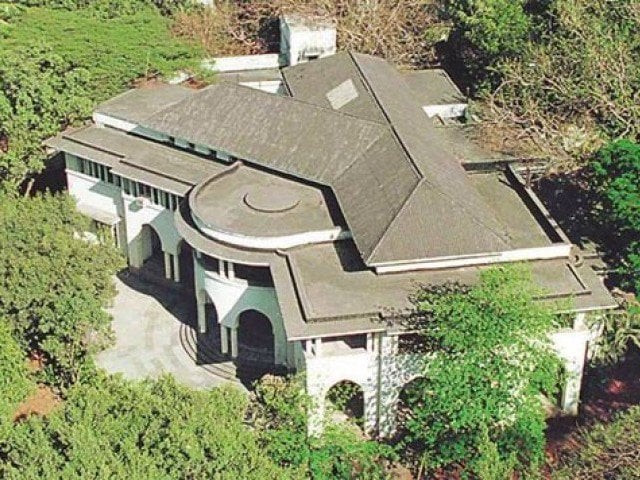Fresh row erupts between India, Pakistan over Jinnah House in Mumbai
Indian lawmaker calls for Jinnah House to be labelled 'enemy property'

Jinnah House, Mumbai. PHOTO COURTESY: INDIAN EXPRESS
Famed for its Italian marble and walnut-wood panelling, Jinnah House, as it is known locally, has been controlled by the Indian government since Jinnah moved to the country he helped create. Pakistan has long claimed ownership of the building.
Pakistan asks India to hand over Jinnah House
Relations between the two countries remain fraught after numerous conflicts since partition and independence from Britain in 1947, and the Jinnah House has been a bone of contention for decades.
Lawmaker Mangal Prabhat Lodha, Donald Trump’s Indian business partner, is leading a campaign to raze the bungalow, in a dispute threatening to provoke a diplomatic row between Delhi and Islamabad, according to The Guardian. Lodha last week said the Indian government must declare the bungalow "enemy property", and hand over the building to Maharashtra state where it is located.
The country spends millions of rupees on the upkeep of the property in which the "conspiracy of partition" was planned, and must now put it to better use, he said.
Foreign Office spokesperson Nafees Zakria said in response that the property belonged to Quaid-e-Azam Muhammad Ali Jinnah, and that "ownership rights" must be respected.
BJP lawmaker calls for demolition of Jinnah House in Mumbai
Jinnah's daughter Dina Wadia, who remained in India, is engaged in a separate legal battle with the Indian government over the property. The stately building was labelled "evacuee property" in 1949, in accordance with the law that allowed the Indian government to take over properties of those who migrated to Pakistan after partition. The Act has since been repealed.
The Enemy Property Act of 1968, enacted after India and Pakistan fought their second war over Kashmir in 1965, gave the Indian government the right to seize assets of Indian nationals who had moved to Pakistan or China following conflicts with the two countries. Pakistan enacted a similar law at the time.
The flaws in India’s plan to diplomatically isolate Pakistan
But controversial amendments last month to the Enemy Property Act, denies Indian families of those who moved to China and Pakistan the right to reclaim their properties.
The value of such properties is estimated at about $15 billion. The law unfairly targets Muslims, analysts say.
"The government may well apply the Enemy Property Act to the Jinnah House, as it can be applied retroactively," said Anand Grover, a lawyer who has argued the enemy property law before the Supreme Court. "It would be one way for the government to settle the numerous disputes over the property."



















COMMENTS
Comments are moderated and generally will be posted if they are on-topic and not abusive.
For more information, please see our Comments FAQ